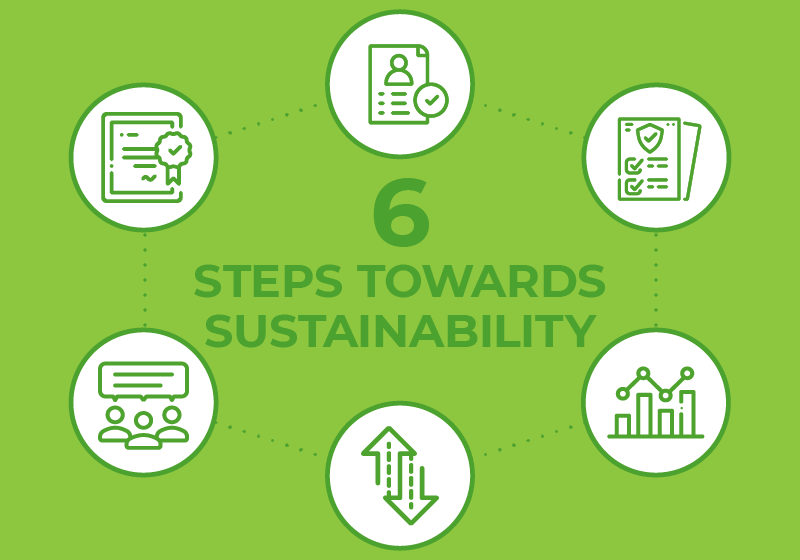As the world grapples with the challenges of climate change, environmental degradation, and resource depletion, the importance of sustainable practices has never been more pressing. One company that has been at the forefront of this effort is Republic Services, a leading provider of environmental services in the United States. In this article, we will explore Republic Services’ oil recycling program, its benefits, and how it contributes to a more sustainable future.

Introduction to Republic Services
Republic Services is a Fortune 500 company that provides a wide range of environmental services, including recycling, waste collection, and disposal. With operations in 41 states and Puerto Rico, the company serves over 14 million customers across the United States. Republic Services has a long history of commitment to sustainability, and its oil recycling program is just one example of its efforts to reduce waste, conserve natural resources, and minimize its environmental footprint.
The Importance of Oil Recycling
Oil recycling is the process of collecting and processing used oil to produce new products, such as lubricants, fuels, and other petroleum-based products. This process helps to conserve natural resources, reduce waste, and decrease the environmental impacts associated with oil production and disposal. Used oil can be found in a variety of sources, including vehicle maintenance, industrial processes, and household waste.
The importance of oil recycling cannot be overstated. According to the United States Environmental Protection Agency (EPA), over 1.3 billion gallons of used oil are generated each year in the United States. If not disposed of properly, used oil can contaminate soil, water, and air, posing serious environmental and health risks. Oil recycling helps to mitigate these risks by providing a safe and responsible way to manage used oil.
Republic Services’ Oil Recycling Program
Republic Services’ oil recycling program is designed to provide a convenient and environmentally responsible way for customers to recycle their used oil. The program accepts a variety of oil types, including motor oil, transmission fluid, and hydraulic fluid. Customers can drop off their used oil at designated collection facilities, where it is then transported to a processing facility for recycling.
The recycling process involves several steps, including collection, transportation, and processing. At the processing facility, the used oil is filtered and refined to remove impurities and contaminants. The resulting product is a high-quality lubricant that can be used in a variety of applications, including automotive, industrial, and marine.
Benefits of Republic Services’ Oil Recycling Program
Republic Services’ oil recycling program offers a number of benefits, both for the environment and for customers. Some of the key benefits include:
- Conservation of Natural Resources: Oil recycling helps to conserve natural resources by reducing the need for virgin oil production. This, in turn, helps to decrease the environmental impacts associated with oil exploration, extraction, and refining.
- Waste Reduction: Oil recycling helps to reduce waste by providing a safe and responsible way to manage used oil. This reduces the amount of waste sent to landfills and minimizes the risk of environmental contamination.
- Cost Savings: Oil recycling can also provide cost savings for customers. By recycling used oil, customers can reduce their waste disposal costs and minimize the need for new oil purchases.
- Environmental Protection: Oil recycling helps to protect the environment by reducing the risk of oil spills and contamination. This, in turn, helps to safeguard soil, water, and air quality, and protects human health.
FAQs
- What types of oil are accepted in Republic Services’ oil recycling program?
Republic Services accepts a variety of oil types, including motor oil, transmission fluid, and hydraulic fluid. - Where can I drop off my used oil?
Customers can drop off their used oil at designated collection facilities, which can be found on Republic Services’ website or by contacting customer service. - Is oil recycling mandatory?
Oil recycling is not mandatory, but it is highly recommended as a way to conserve natural resources, reduce waste, and minimize environmental impacts. - How is used oil processed?
Used oil is filtered and refined to remove impurities and contaminants, resulting in a high-quality lubricant that can be used in a variety of applications. - Is oil recycling free?
Some collection facilities may charge a small fee for oil recycling, while others may offer the service for free. Contact Republic Services for more information.
Conclusion
Republic Services’ oil recycling program is a vital component of the company’s sustainability efforts. By providing a safe and responsible way to manage used oil, the program helps to conserve natural resources, reduce waste, and minimize environmental impacts. As the world continues to grapple with the challenges of climate change, environmental degradation, and resource depletion, the importance of sustainable practices like oil recycling cannot be overstated.
By participating in Republic Services’ oil recycling program, customers can play a vital role in protecting the environment and promoting sustainability. Whether you’re a homeowner, business owner, or community leader, there are many ways to get involved and make a difference. So why not start today? Take the first step towards a more sustainable future by recycling your used oil and encouraging others to do the same.
In conclusion, Republic Services’ oil recycling program is an important initiative that offers a range of benefits for the environment, customers, and the community. By conserving natural resources, reducing waste, and minimizing environmental impacts, the program helps to promote sustainability and protect the environment for future generations. So let’s work together to make a difference and create a more sustainable future for all.
Closure
Thus, we hope this article has provided valuable insights into Republic Services Oil Recycling: A Step Towards Sustainability. We hope you find this article informative and beneficial. See you in our next article!